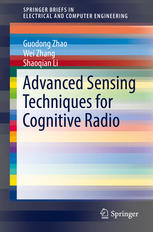

Most ebook files are in PDF format, so you can easily read them using various software such as Foxit Reader or directly on the Google Chrome browser.
Some ebook files are released by publishers in other formats such as .awz, .mobi, .epub, .fb2, etc. You may need to install specific software to read these formats on mobile/PC, such as Calibre.
Please read the tutorial at this link: https://ebookbell.com/faq
We offer FREE conversion to the popular formats you request; however, this may take some time. Therefore, right after payment, please email us, and we will try to provide the service as quickly as possible.
For some exceptional file formats or broken links (if any), please refrain from opening any disputes. Instead, email us first, and we will try to assist within a maximum of 6 hours.
EbookBell Team

4.7
16 reviewsThis SpringerBrief investigates advanced sensing techniques to detect and estimate the primary receiver for cognitive radio systems. Along with a comprehensive overview of existing spectrum sensing techniques, this brief focuses on the design of new signal processing techniques, including the region-based sensing, jamming-based probing, and relay-based probing. The proposed sensing techniques aim to detect the nearby primary receiver and estimate the cross-channel gain between the cognitive transmitter and primary receiver. The performance of the proposed algorithms is evaluated by simulations in terms of several performance parameters, including detection probability, interference probability, and estimation error. The results show that the proposed sensing techniques can effectively sense the primary receiver and improve the cognitive transmission throughput. Researchers and postgraduate students in electrical engineering will find this an exceptional resource.